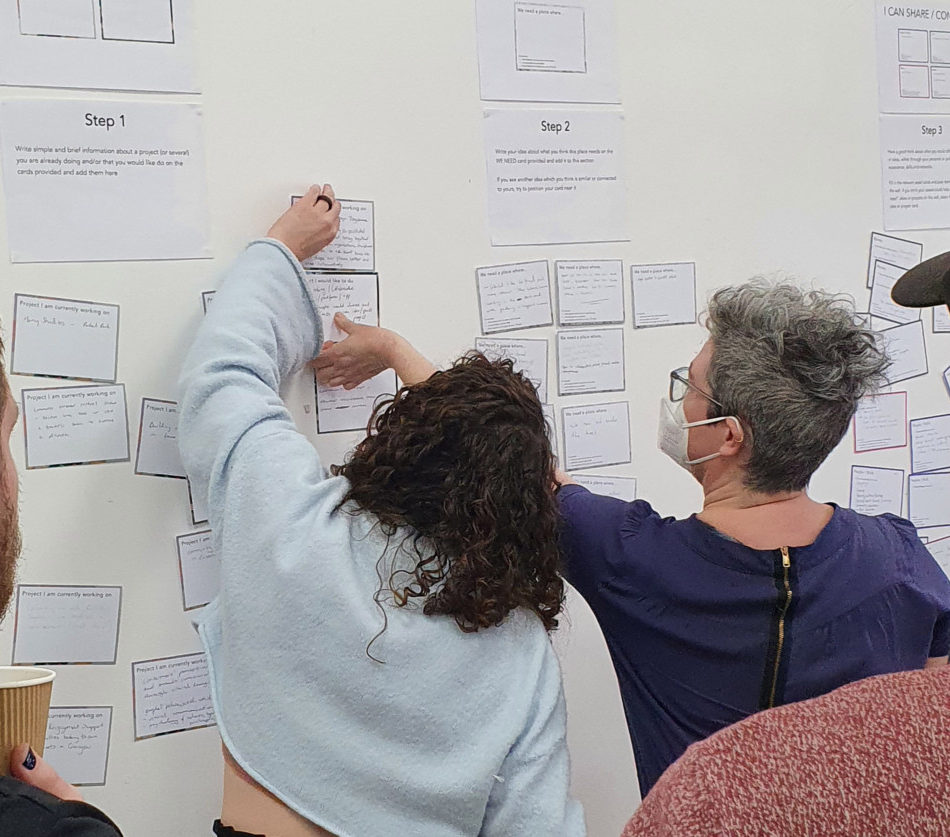Written by:
On 26 April, we gathered together a group of people at the wonderful Many Studios, located in the East End of Glasgow, to talk about how they might work together to make interesting things happen in that neighbourhood and in the city as a whole.
Share, Connect, Create – Glasgow was an event organised by The Glass-House and The Open University, through the research project Cross-pollination: Growing cross-sector design collaboration in placemaking, funded by the Arts and Humanities Research Council.
The project aims to scale up collaboration by exploring and developing spaces and mechanisms that can enable and empower placemaking actors (e.g. local authorities, civic sector organisations, community groups, academic institutions, cultural institutions and businesses) to connect on shared values and objectives, unearth and mobilise their collective assets, and then collaborate through design and placemaking initiatives in local areas.
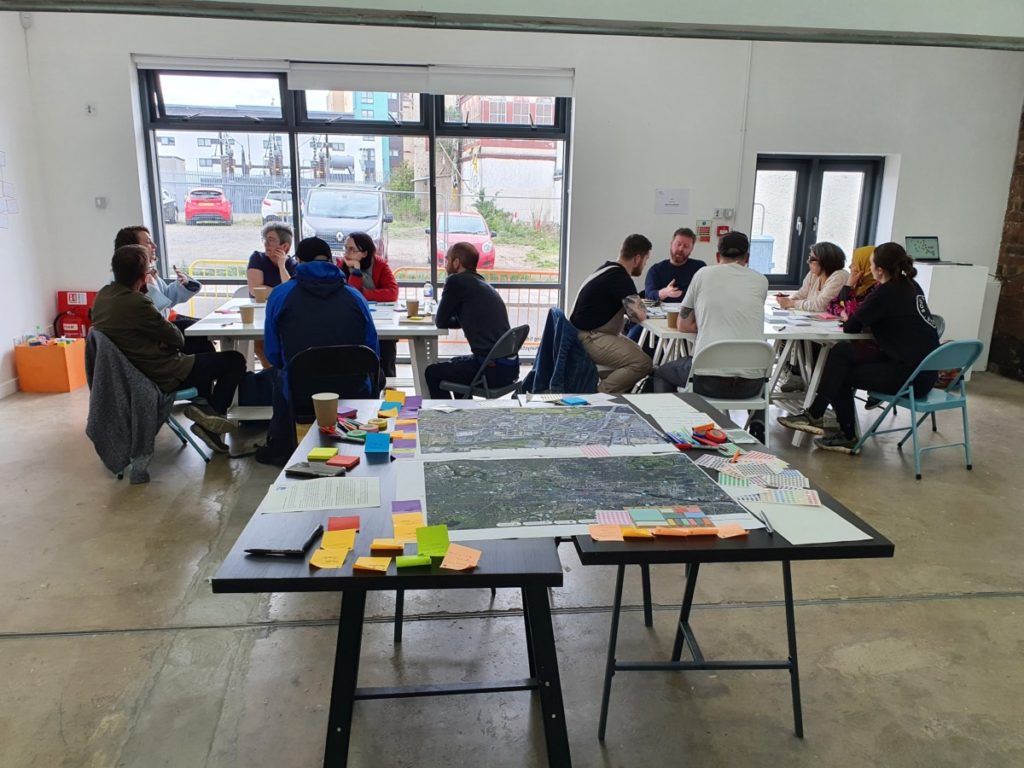
This event grew out of a conversation at our online workshop, Share, Connect, Create, which brought together people from Glasgow and London to explore these themes. A small group of people who live and work in Glasgow connected when talking about the areas in which they work, and in particular the East End of Glasgow, and some of the interesting local groups and initiatives. From the seed of a light-touch conversation about an under-used space in the Barras Market area, and about the local businesses, cultural activities and other initiatives around it, we began to explore how activating this space might be a way to catalyse and support local groups connecting and working together to improve their neighbourhood.
We realised quite quickly that while there were some key local players who it would be great to get into the room, it would also be beneficial to invite people and organisations from across the city to share their experience, creativity and networks. While that particular space served as an interesting example, what really interested us collectively was how we could explore the concept of activating underused spaces as a catalyst for collaboration across sectors and disciplines.
So with the help of this small group, we put out an open call to people and organisations in Glasgow interested in joining this conversation. A diverse group of people turned up, including local artists, designers, urban designers, educators, social media, business owners and entrepreneurs, voluntary sector umbrella and support organisations. We discovered that there were 8 different nationalities represented in the room.
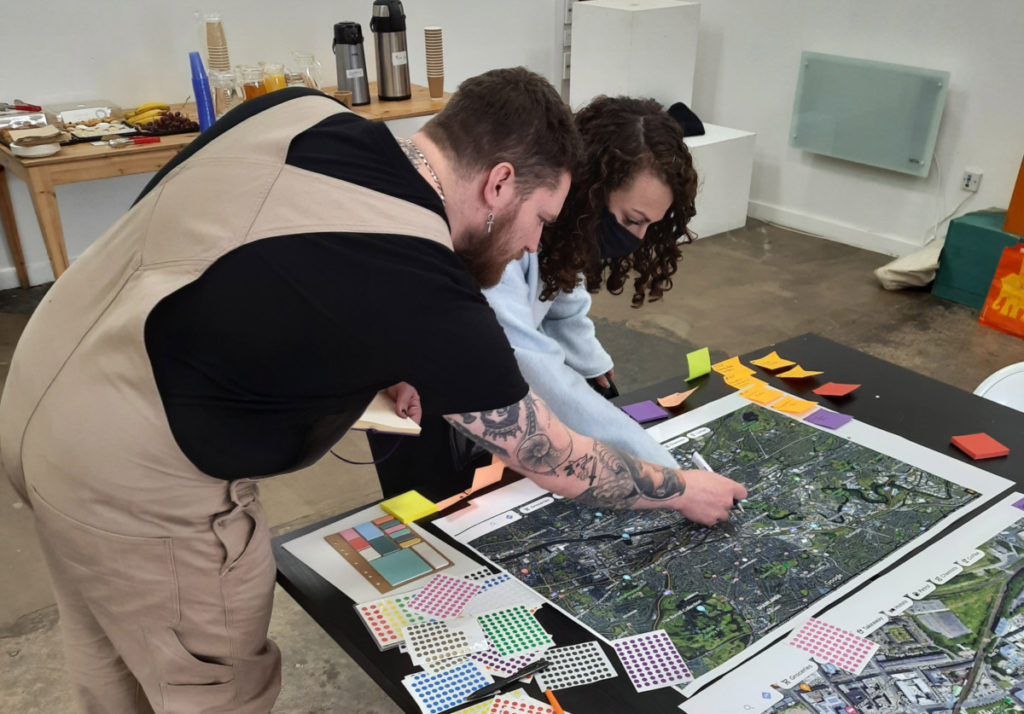
The group started off by mapping what was going on in the area around Barras Market, and further afield in the city of Glasgow. By crowdsourcing a map of the initiatives and organisations that we were collectively aware of, we could then start to identify a potential network of collaborators. This was done on a printed map using post-its and sticky dots, with the intention to then turn it into a digital map that the group can continue to add to.
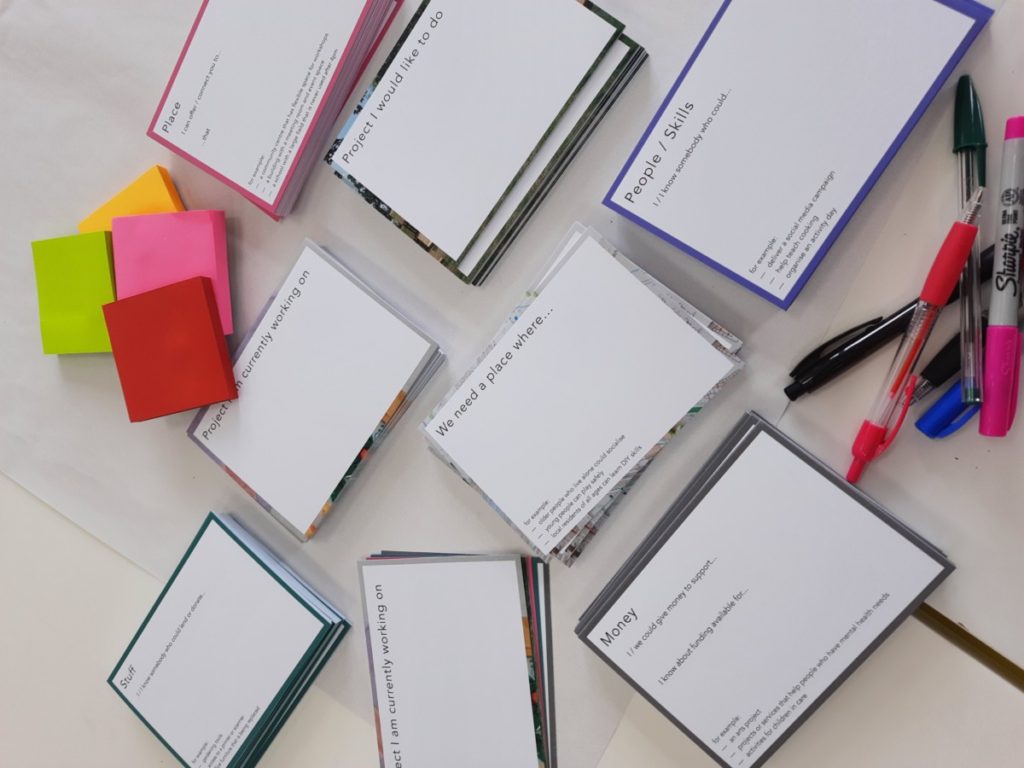
Next, we asked our participants to fill out what we call our project and asset cards (above), and to add them to our cross-pollination wall, which was split into three sections. The first section was for people to pin up information on projects they are working on or would like to do, aiming to create a kind of notice board of projects big and small, and to allow the group to understand the type of projects and work each member was involved with.
The second wall section asked people what the local place needs, and in this section people added cards outlining what they thought would improve their area. This ranged from quite big picture concepts like “more green” to identifying desired amenities and facilities which could help address some specific social and economic issues.
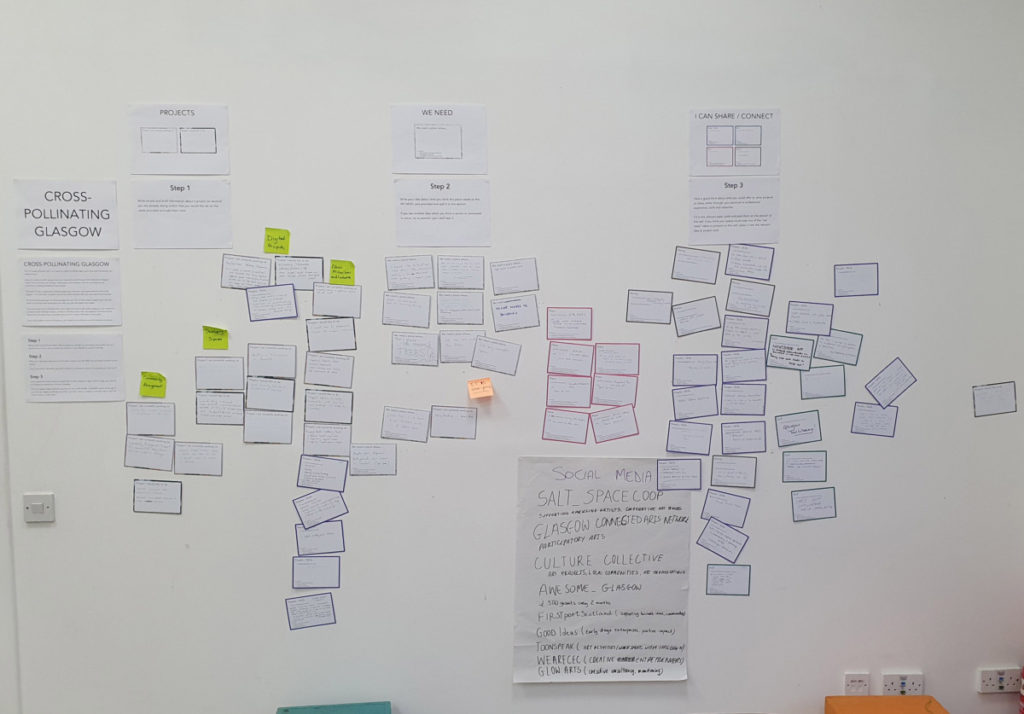
The final section of the wall focused on assets. This was where people posted what they could contribute or help connect to other projects and initiatives. This included skills, materials, access to people, places, organisations, funding and so on. It was soon obvious that those in the room already had access to, either directly or within close reach, a broad spectrum of resources. The Cross-pollination research project team was then able to add our support and networks during the workshop, alongside a pot of up to £10,000 of research funding to support collaborative initiatives over the coming months.
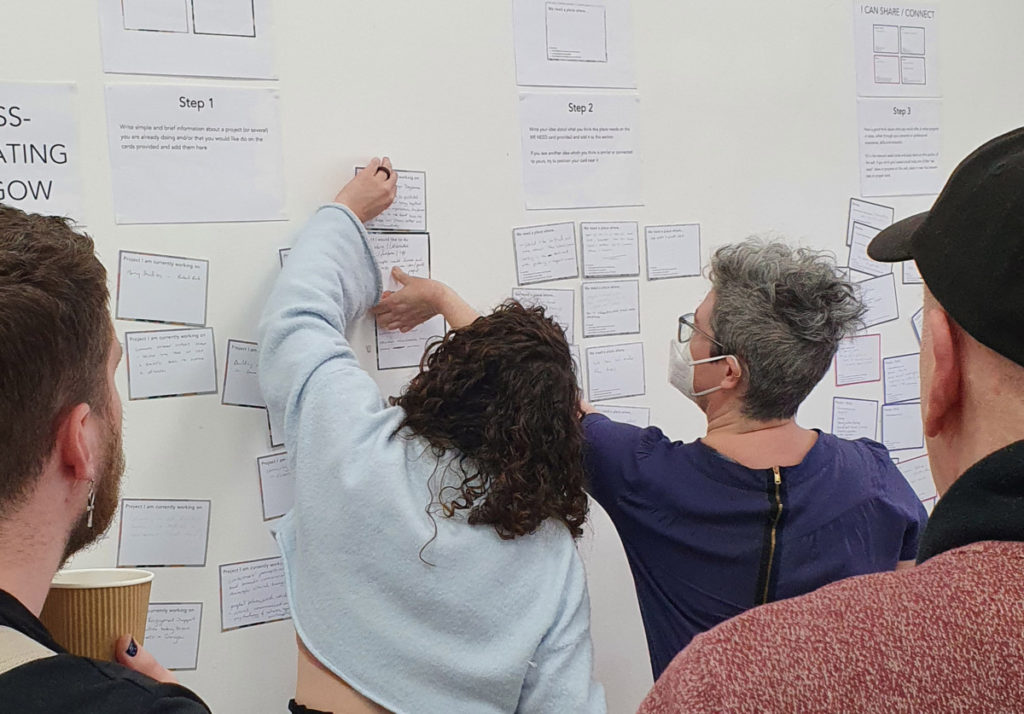
Through the day’s discussions, we explored the opportunities of kick-starting collaboration through activating underused spaces and the roles that different groups and individuals might play in this process. Some really lovely local anecdotes emerged from the collective experiences within the room, including my favourite example of empowering primary-aged children as volunteer litter champions, giving them the confidence and influence to confront and change the behaviour of adults who litter in shared public space.
Other wonderful ideas were also put forward, such as building on the offering of a local cafe which runs cooking courses, supporting them to expand and spill into an open space nearby. This in turn could potentially activate a recipe and food-sharing initiative to bring different cultures in the area together, which local designers could help capture and share through cookery books and postcards, and which local organisations could help activate through a range of events.
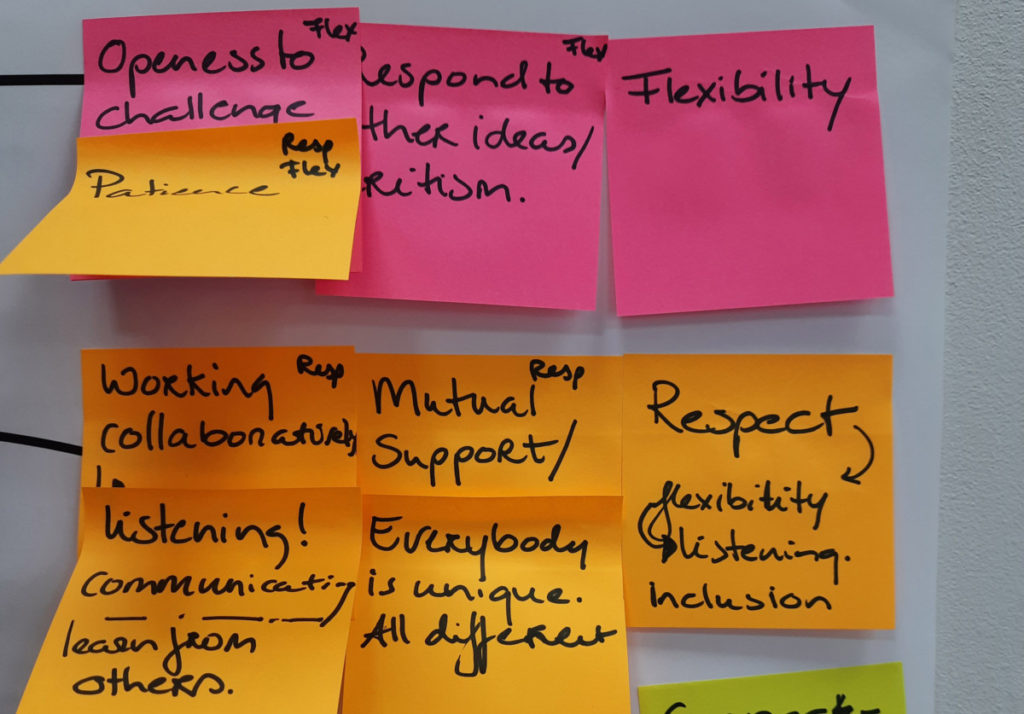
During the workshop, the participants identified what they saw as the shared values and principles that guide successful collaboration. Words such as respect, inclusivity, openness, flexibility and patience emerged, as did the importance of setting clear shared objectives, clarity of communication, and creating spaces in which it felt safe to disagree and talk through differences. They also touched on the importance of experimenting, and being willing to fail, and the importance of learning from things not going as planned.
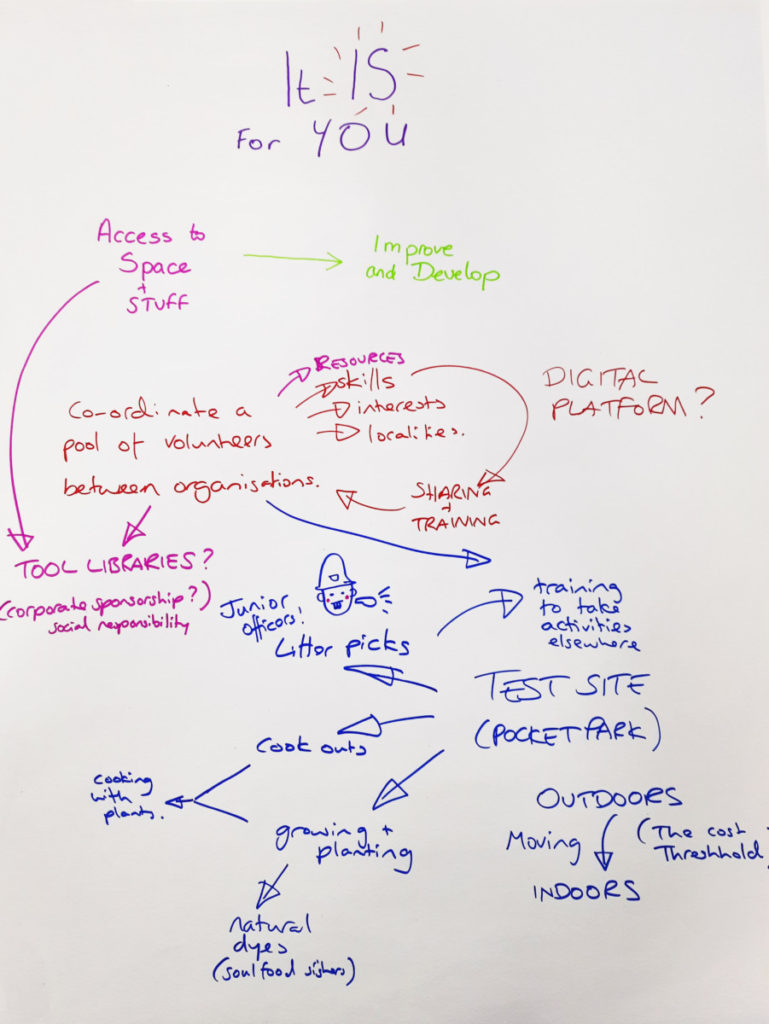
All of these activities led to a conversation around what might emerge from all of the mapping and discussion undertaken, and how to extend and convert this conversation into collaborative action. There was a collective realisation that the first step was making this conversation and initiative feel relevant, open and welcoming to others and that perhaps the best way to get past the potential reaction of “It’s not for me” was to start a network called “It IS for you”.
We left exchanging email addresses and have set up a WhatsApp group to continue the conversation beyond this event. We have already started sharing more ideas and stories.
I can’t wait to see what happens next.
Read more about our cross-pollination approach here, and about the Cross-Pollination research project here.
